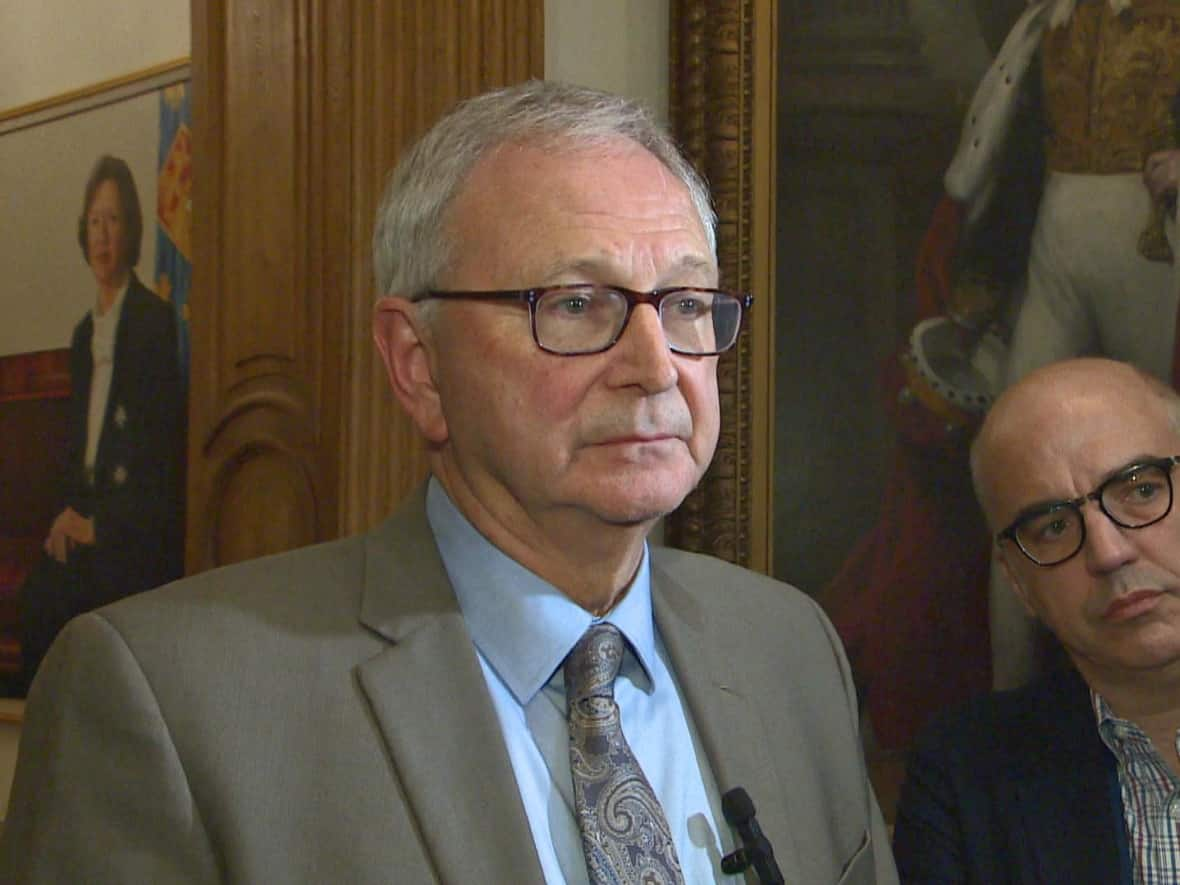Higgs compromises on language law, but not enough for Liberals, Greens

The Higgs government has adopted changes to its proposed overhaul of the Official Languages Act, but those amendments don't appear to be enough to win the support of the opposition parties.
Premier Blaine Higgs announced five amendments Tuesday afternoon during a committee session examining the legislation.
Four of them deal with reinstating a mandatory review of the act after 10 years, a review Higgs had wanted to remove.
The premier told the committee he was bringing back the review "upon reflection and listening to the many comments that were expressed" after the bill was introduced in March.

The opposition Liberals, the Greens and the Acadian Society of New Brunswick all denounced the elimination of the mandatory review as a weakening of the legislation, which lays out the province's obligation to communicate with the public in both English and French.
Higgs had argued that a newly created languages secretariat within the civil service would be enough to ensure the bill is regularly re-examined and updated, but he eventually gave ground.
"We believe that a 10-year cycle, combined with the role of the secretariat and the fact that a review can be done at any time, will be sufficient and will address concerns expressed regarding the lack of mandatory review," he said Tuesday.
The Liberals and Greens said Higgs had spurned their efforts to meet and craft the wording of the amendments together, and it was unlikely they'd be able to vote for the bill, even with the review restored.
Liberal Leader Susan Holt pointed out that every version of the act and every major change over more than five decades has won the unanimous support of all MLAs in the legislature.
"Now that this government isn't interested in collaborating and in unifying the province ... I'm disappointed," she told reporters.
Green MLA Kevin Arseneau said putting the mandatory review back in would not represent a strengthening of the bill to address the fact that francophones still don't always get equal service in their language.
"Status quo, when you don't have substantive equality, status quo is actually a step back," he said.

"I'm not voting for a step back. My caucus is not voting for a step back. We have decided we're not going back."
The mood in the committee session turned tense late Tuesday as several opposition MLAs accused Higgs of refusing to listen to them and of not understanding minority francophone language concerns.
The Liberals tried to amend Higgs's amendments to require the review every seven years, but the Progressive Conservative majority on the committee voted that down.
Instead, they adopted wording that requires whoever is premier to initiate the next review so that it's finished by Dec. 31, 2031.
The committee approved four of Higgs's five amendments, but wasn't able to finish its review of the legislation and vote before its scheduled adjournment time at 6 p.m.
After the committee eventually votes on the amended bill, it will send it back to the legislature for third reading and a final vote.
Both parties had wanted the law to establish a permanent committee of the legislature on official languages, but Higgs rejected that.
According to Green Leader David Coon, Higgs said a committee of the legislature would "duplicate work and weigh down current processes."
A fifth amendment introduced by Higgs on Tuesday clarifies how the official languages commissioner will describe complaints in their annual reports.
The original bill, introduced by Higgs in March, said the commissioner would identify the "origin" of a complaint — raising concerns that could identify complainants who are supposed to be guaranteed confidentiality.
The premier's amendment removed the reference to the "origin" of a complaint.


